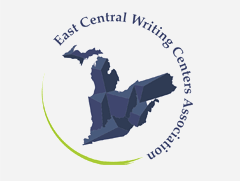Presentation/Proposal Title
Reflecting and Connecting: Inventing Shared Space for Student Reflection
Type of Presentation/Proposal
Individual Presentation or Paper
Start Date
5-4-2019 2:00 PM
End Date
5-4-2019 3:00 PM
Keywords
reflection, public, community, invention, experimentation, consultation
Description
Reflective practices have long been part of writing center work. While consultants and students reflect differently and for different audiences and purposes (e.g., metacognition, transfer, personal insight, confidence-building, and so on), these reflections are often private or semi-private documents seen only by the students and/or consultants who create them and, possibly, by center administrators and, in some cases, faculty members. This presentation details the process and outcomes of a small experiment I conducted during my writing center consultations over the course of the Fall 2018 term at the University of Cincinnati Blue Ash College, a two-year, open-enrollment institution serving a wide diversity of students. Seeking to develop and disrupt common, mostly-private, and individualized reflective practices and to expand the quality, relevance, and meaningfulness of students’ post-session reflections, I invited students to reflect in a shared whiteboard space near my workstation in response to the question, “What advice would you give to future students?” Students’ responses—and their responses to others’ responses—offer insight into thepossibilities for public, collective reflection. As student writing accumulated in this shared space throughout the semester, a kind of asynchronous community of practice emerged. Students spent time reading others’ responses before adding their own. In these moments, students sometimes asked questions about what others had written and offered their own takes on the advice. These questions, in-turn, often expanded consultations in exciting ways. In this interactive session, I will present my findings about the kinds of advice students offered when writing in a public space. I’ll also share my experience of the effects this experiment had had on consultations. Next, in the interactive portion of this presentation, participants will have the opportunity to think about the aims and outcomes of reflection and to re-think, re-vise, and develop and share ideas for experimenting with their own reflective practices. Some questions to consider: How do we define what makes a reflection useful or “successful”? In what ways can reflection be incorporated into writing consultations? What are the benefits and drawbacks of more public reflection? Finally, participants will leave with a plan for experimenting with re-inventing their own reflective practices.
Reflecting and Connecting: Inventing Shared Space for Student Reflection
Deeds Boardroom
Reflective practices have long been part of writing center work. While consultants and students reflect differently and for different audiences and purposes (e.g., metacognition, transfer, personal insight, confidence-building, and so on), these reflections are often private or semi-private documents seen only by the students and/or consultants who create them and, possibly, by center administrators and, in some cases, faculty members. This presentation details the process and outcomes of a small experiment I conducted during my writing center consultations over the course of the Fall 2018 term at the University of Cincinnati Blue Ash College, a two-year, open-enrollment institution serving a wide diversity of students. Seeking to develop and disrupt common, mostly-private, and individualized reflective practices and to expand the quality, relevance, and meaningfulness of students’ post-session reflections, I invited students to reflect in a shared whiteboard space near my workstation in response to the question, “What advice would you give to future students?” Students’ responses—and their responses to others’ responses—offer insight into thepossibilities for public, collective reflection. As student writing accumulated in this shared space throughout the semester, a kind of asynchronous community of practice emerged. Students spent time reading others’ responses before adding their own. In these moments, students sometimes asked questions about what others had written and offered their own takes on the advice. These questions, in-turn, often expanded consultations in exciting ways. In this interactive session, I will present my findings about the kinds of advice students offered when writing in a public space. I’ll also share my experience of the effects this experiment had had on consultations. Next, in the interactive portion of this presentation, participants will have the opportunity to think about the aims and outcomes of reflection and to re-think, re-vise, and develop and share ideas for experimenting with their own reflective practices. Some questions to consider: How do we define what makes a reflection useful or “successful”? In what ways can reflection be incorporated into writing consultations? What are the benefits and drawbacks of more public reflection? Finally, participants will leave with a plan for experimenting with re-inventing their own reflective practices.


